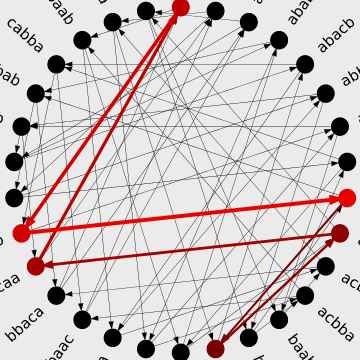python · numpy · data wrangling · programming
A window on Numpy's views
 If you use Numpy for your everyday number crunching and you’ve never heard about views, you are not as effective as you could be. With this post, I want to help you take your Numpy skills to the next level.
Your mental model of what arrays are in Numpy is probably quite different from the underlying reality.
If you use Numpy for your everyday number crunching and you’ve never heard about views, you are not as effective as you could be. With this post, I want to help you take your Numpy skills to the next level.
Your mental model of what arrays are in Numpy is probably quite different from the underlying reality.
Read More ›
statistics
Deriving the power of Wald test for a single parameter
 While studying from Larry Wasserman’s “All of Statistics”, I’ve found that the exposition of the Wald test was a little confusing to me, so that I struggled a bit in trying to derive a key result. Given that I didn’t find much on the internet to help me, and that I finally figured it out after a while, I thought of writing a small post for other confused students.
While studying from Larry Wasserman’s “All of Statistics”, I’ve found that the exposition of the Wald test was a little confusing to me, so that I struggled a bit in trying to derive a key result. Given that I didn’t find much on the internet to help me, and that I finally figured it out after a while, I thought of writing a small post for other confused students.
Read More ›
NLP · Python
Minimum Edit Distance in Python
 While I’m going through the NLP course by Jurafsky and Manning on coursera, I coded a small python implementation of the Wagner-Fischer algorithm presented in lecture 6, 7 and 8. And here it is! Please refer to the lectures for a more in-depth explanations of the algorithm. I’ll just go quickly through the basics and then present the code.
While I’m going through the NLP course by Jurafsky and Manning on coursera, I coded a small python implementation of the Wagner-Fischer algorithm presented in lecture 6, 7 and 8. And here it is! Please refer to the lectures for a more in-depth explanations of the algorithm. I’ll just go quickly through the basics and then present the code.
Read More ›
blog
On the objectivity of Morality and Beauty
 A beautiful flower.
Sometime before Christmas, a friend pointed me to a great conversation between Sam Harris and Quantum Computation maven David Deutsch. Their discussion revolves on the ideas presented in the physicist’s book “The beginning of infinity”, seamlessly touching on science, knowledge, progress, the relation between humanity and the universe, and the objectivity of morality and beauty.
Yes, that’s right, the objectivity of morality and beauty. That’s why I had to read “The beginning of infinity”.
A beautiful flower.
Sometime before Christmas, a friend pointed me to a great conversation between Sam Harris and Quantum Computation maven David Deutsch. Their discussion revolves on the ideas presented in the physicist’s book “The beginning of infinity”, seamlessly touching on science, knowledge, progress, the relation between humanity and the universe, and the objectivity of morality and beauty.
Yes, that’s right, the objectivity of morality and beauty. That’s why I had to read “The beginning of infinity”.
Read More ›
Dynamical Systems · Python
Heteroclinic Switching simulator and visualizer
 I’ll soon be pleased to give a talk about my work on heteroclinic dynamics to other heteroclinic people with heteroclinic interests at the Heteroclinic dynamics in neuroscience workshop this December in Nice. In this heteroclinic setting, I thought it would be worth it to have a simple interactive simulation to play with while I illustrate my findings, as I don’t want the talk to be boring, and nothing boosts understanding like a good visualization!
I’ll soon be pleased to give a talk about my work on heteroclinic dynamics to other heteroclinic people with heteroclinic interests at the Heteroclinic dynamics in neuroscience workshop this December in Nice. In this heteroclinic setting, I thought it would be worth it to have a simple interactive simulation to play with while I illustrate my findings, as I don’t want the talk to be boring, and nothing boosts understanding like a good visualization!
Read More ›